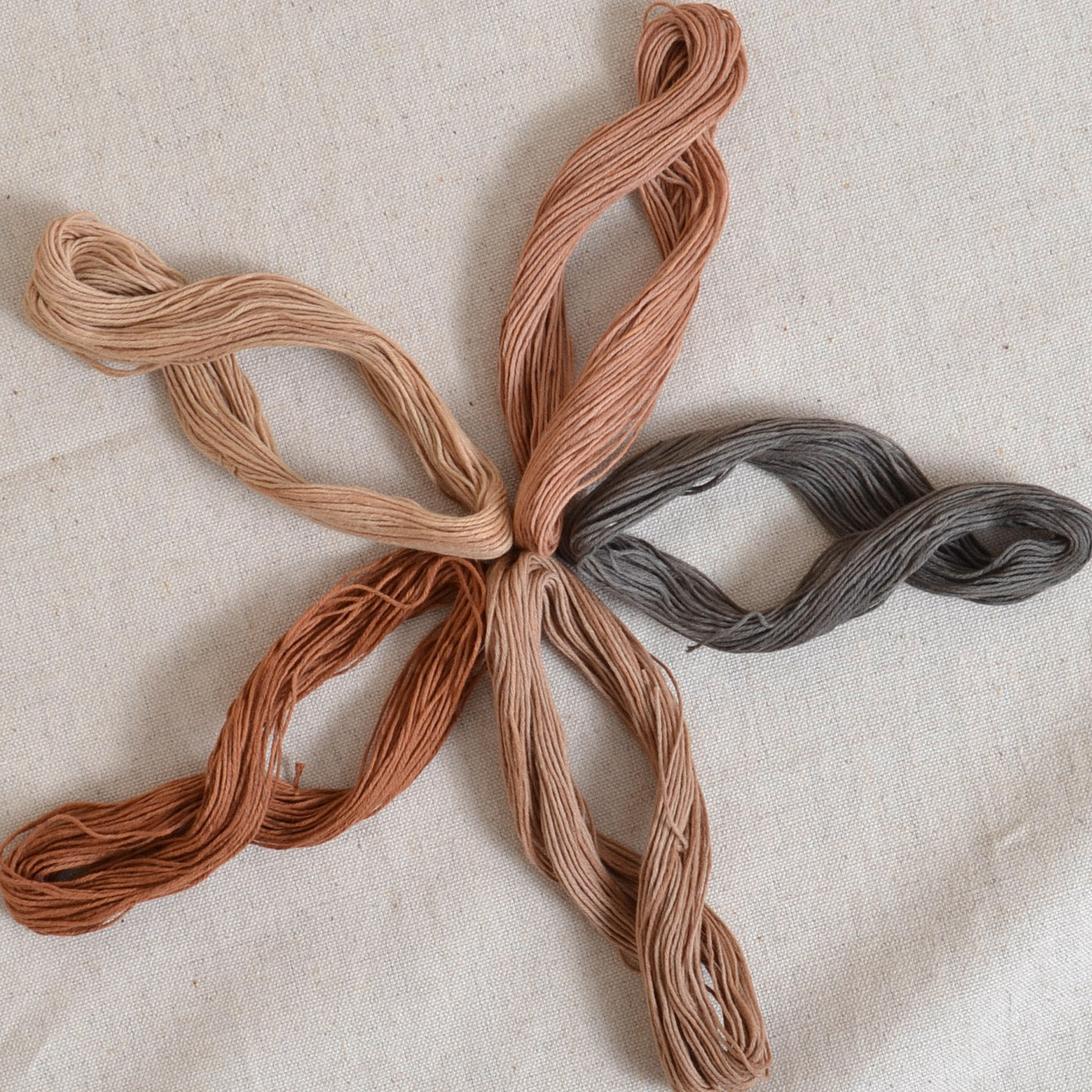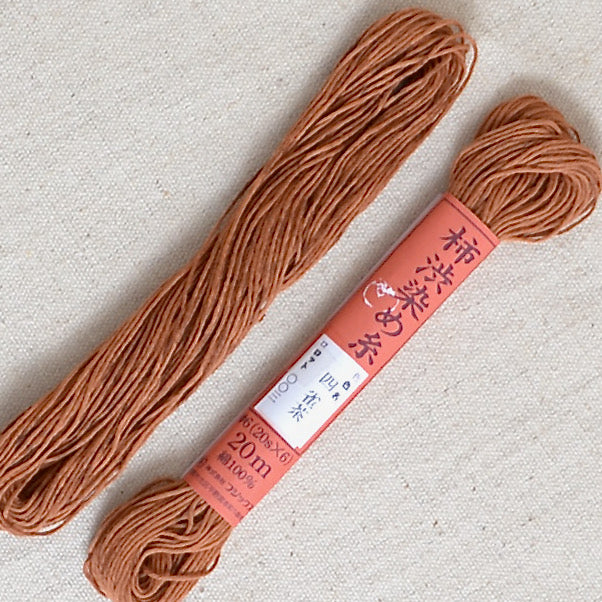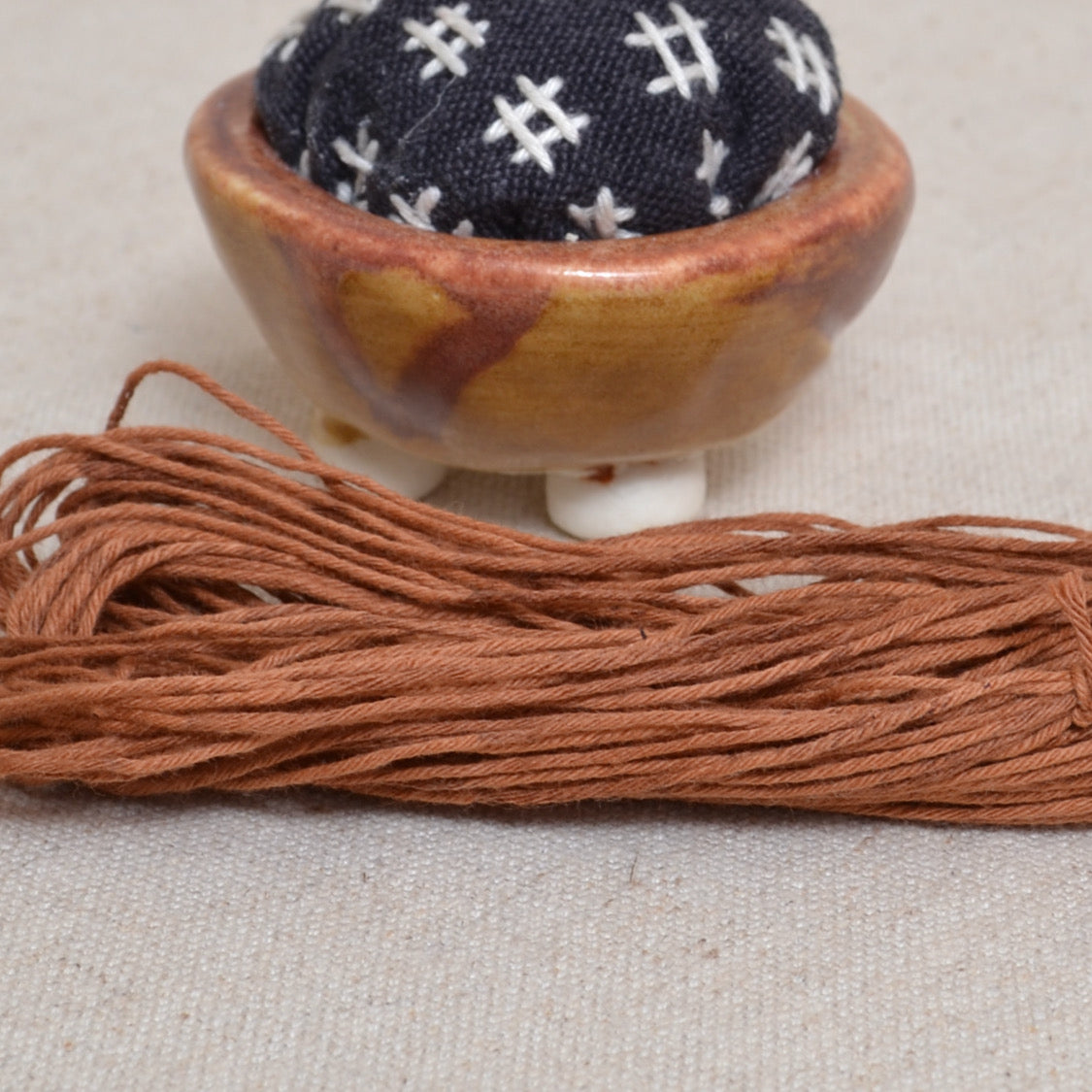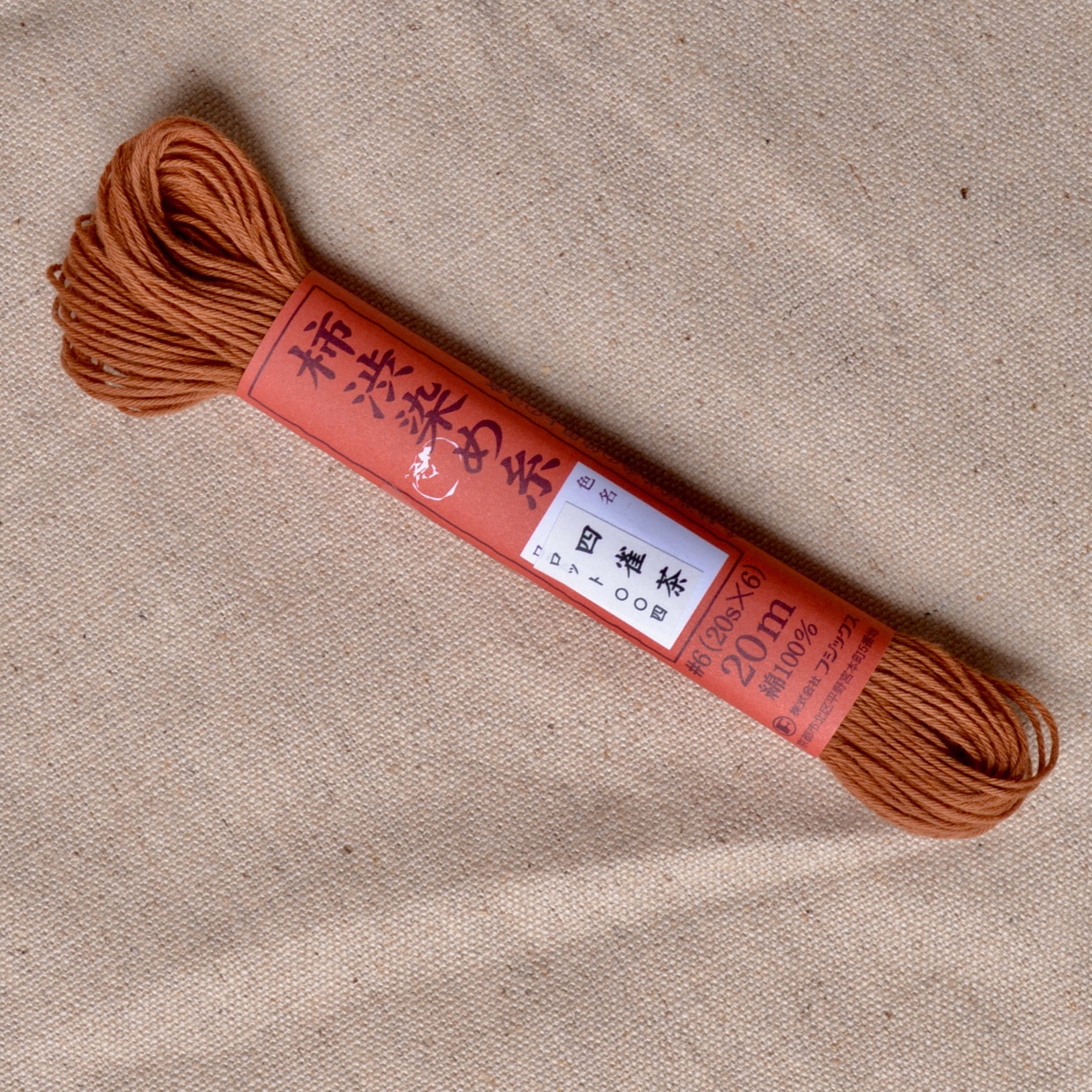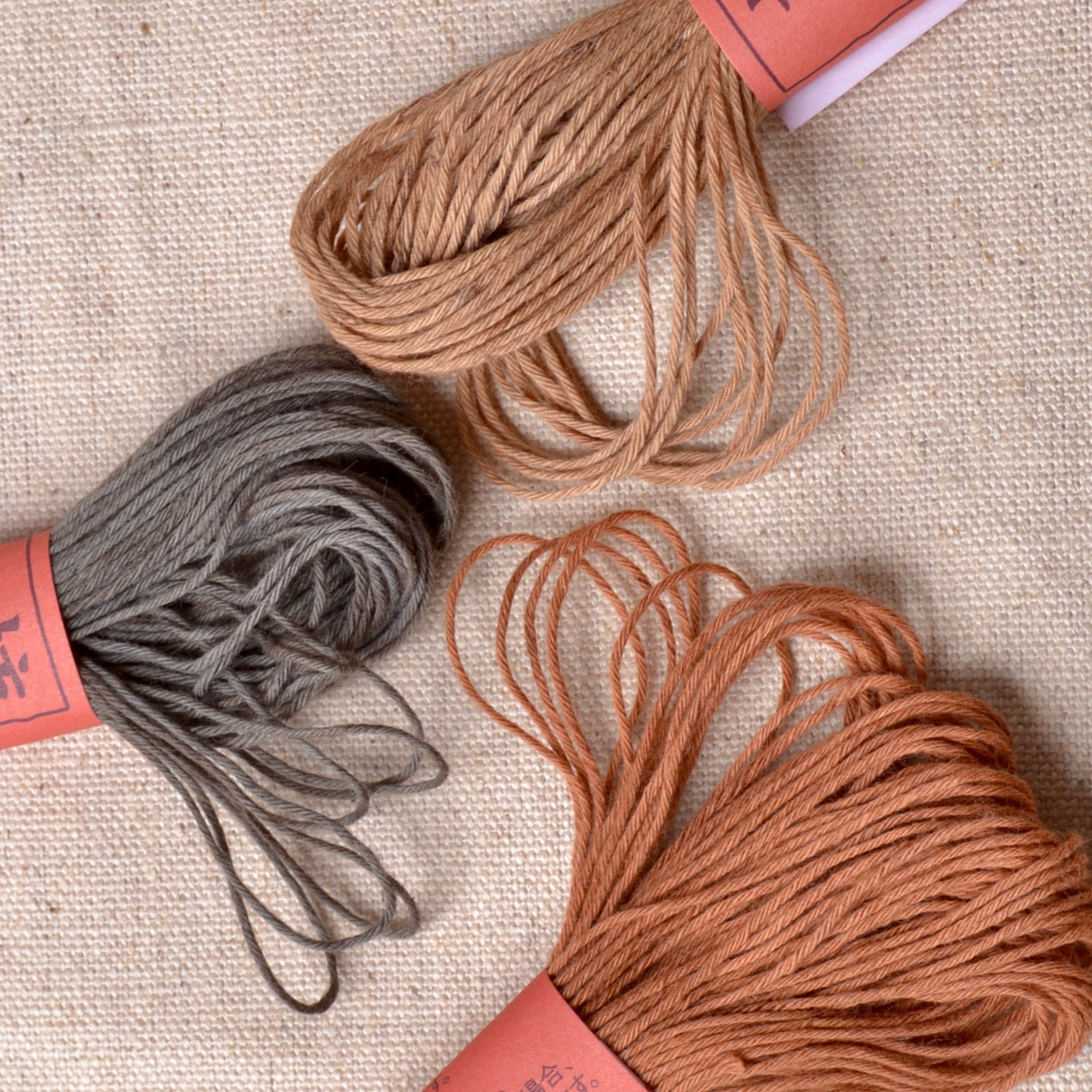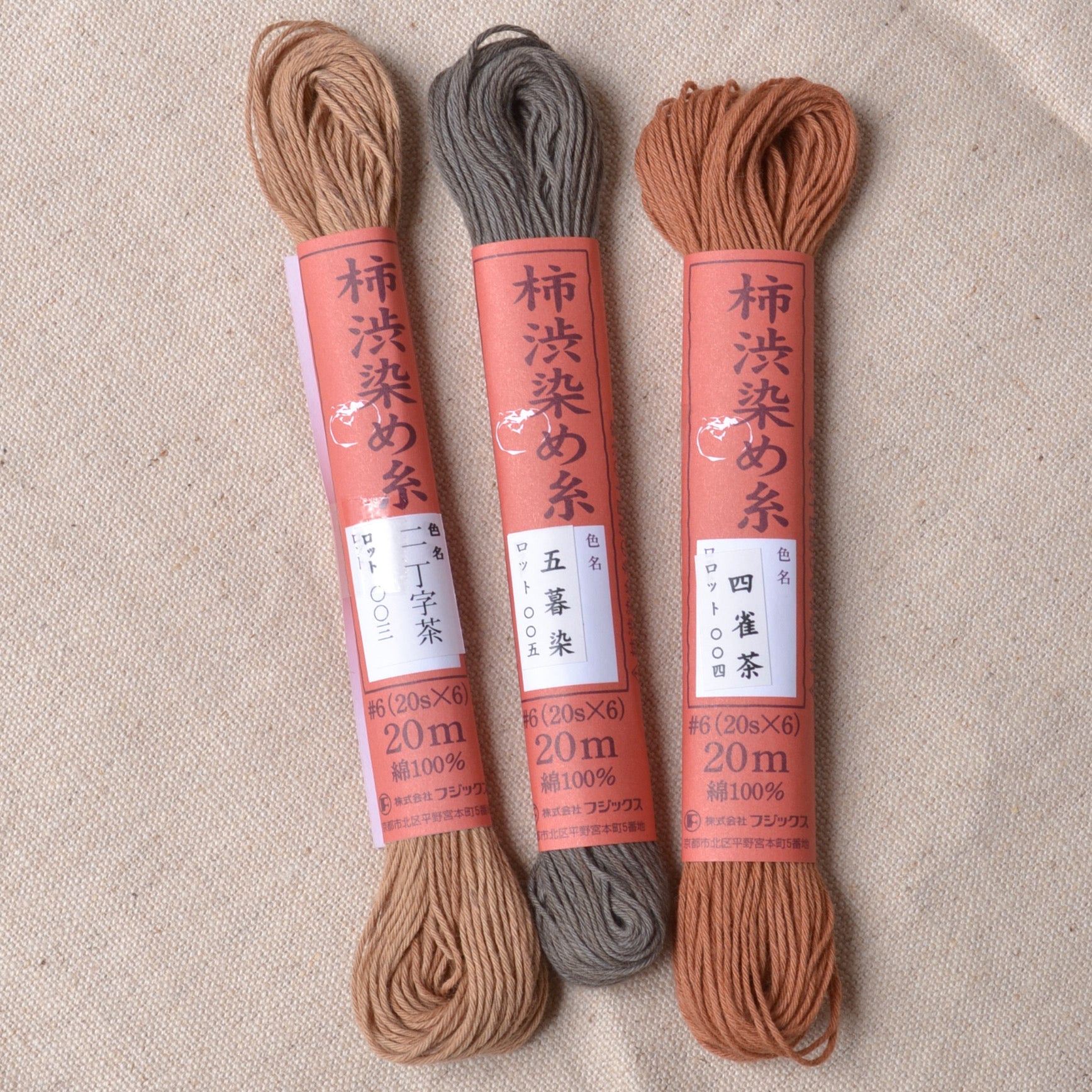Fujix 'Kakishibuzome' Persimmon Dyed Cotton Thread, Brick Red #4
$7.45
The five Persimmon dyed thread colours in this kakishibuzome series are a special product inspired by Japanese textile history, and made by the nearly 100 year old Fujix Threads Company in Japan.
This on is called Suzumecha (Sparrow Head Brown) but the english on the package says it is brick red. I would say that is a good description so perhaps Japan has a sparrow with a reddish colour head?
Dyeing fabrics and threads with the juice of the Astringent Persimmon fruit is a practice dating back over 1,000 years in Japan. As well as colour, the use of the Astringent Persimmon juices provides the fibre some natural waterproofing. It also have antiseptic qualities and acts as an insect repellant. You can imagine how these characteristics would have been beneficial in bedding and clothing fabrics before washing machines and pesticides!
Product Notes:
20 meter skein, S twist, 100% cotton, about the weight of #5 perle cotton, use a large eyes needle.
The thread has a matte finish and feels slightly rough so your stitching will have a vintage look from the beginning. It will likely look it best on natural cotton, flax, or linen fabrics with some surface texture.
As with many plant dyed cottons, there will be some variations in the colour in each skein, and the colours will mellow over time with sunlight and washings. These qualities add authenticity to the look of your Boro inspired projects but you can slow the changes considerably not leaving the thread in direct sunlight.
A special note regarding washing: If you have hard water these threads may darken when washed. You can off-set this some by adding vinegar to rinse water. This kind of colour shift is characteristic of some plant dyes. Some dye colours made from plants are more stable than others, some are easily shifted by the ph balance of washing water. This is a quality to accept and enjoy. There is much beauty in the changing of natural colours.
Note: It is always best to wash plant dyed fibres with mild ph balanced soaps. Harsh washing detergents and high heats can reduce the beauty of the colour and the fibres quickly.
Please select all options.


